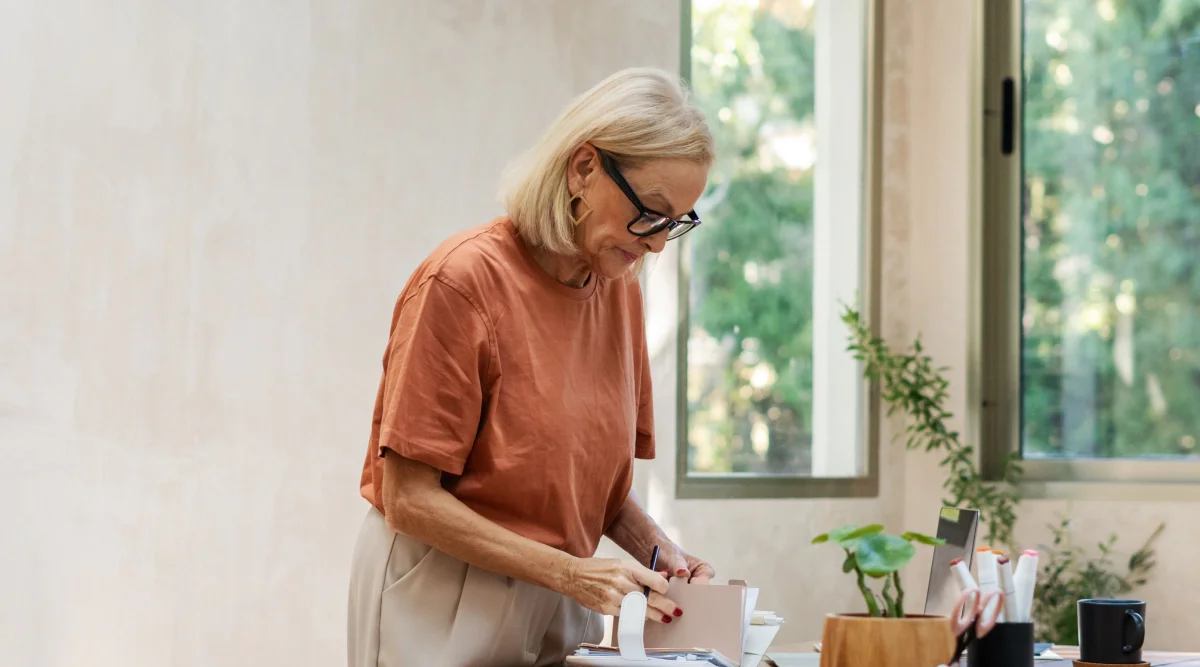Facebook pages used to be a place to advertise your business and reach your audience for free. Then, in 2018, Facebook changed its algorithm so that users' newsfeeds were filled with updates from friends rather than companies.
While this may have made for a better user experience, it had a huge impact on business pages. Companies had to begin paying for advertising on the site just to get seen.
Thankfully, businesses figured out that they could tap into another marketing tool on the platform: Facebook groups. Through this tool, you can create a customer community while showcasing your products and services.
By learning about Facebook groups, you can promote your brand and foster customer loyalty at the same time.

What are Facebook groups?
Facebook groups are public or private communities on Facebook where members discuss a topic they're interested in. Sometimes Facebook groups will appear in a search. Other times, you need an invite to join if the group is secret. Anyone can make a group, and you can share whatever you would on your personal Facebook feed, including updates, photos, and videos.
"Facebook groups are one of the best places to drive engagement on social media. Groups allow you to unite people with a common interest, facilitate conversations with them, and build community," says Miranda Paquet, general manager at TheClose, a website for real estate professionals. "While a Facebook page relies on consistent posts from the business, Facebook groups thrive when members ask questions, post photos, and help one another."
If you're interested in using Facebook groups for your customer community, here are some tips.
Post valuable content
If you're just trying to sell your products and services to customers without offering anything valuable in return, people are likely going to leave your group pretty fast. According to Michael Bogosian, founder and managing partner of Blacksmith Digital, you should aim to entertain, inform, and engage with your community.
Before you post something, Bogosian says you should ask yourself: "'Is this content worthy of being shared with a stranger's community?'
If the answer is no, I'd reconsider sharing it with your group. Take time researching your post or coming up with facts and figures to support your arguments. People will appreciate the extra mile you're willing to go to make sure they are getting awesome content."
Vet your members
You can create a Facebook group that's public or private. To avoid people spamming your community, "Don't let people easily into your group," says Stanley Tate, owner and founder of Tate Law. "Do some vetting before allowing entry and, in case it turns out to be a mistake, terminate them immediately."
You can vet members by asking questions before you let them join. For instance, if you're starting a group about dog ownership, you could ask what type of dog they have, what tips they could offer other members, and why they want to join.
Post frequently
You'll find that if you don't post often—and members don't post, either—the group will quickly fall to the wayside.
Paquet recommends posting at least three times a week. "Rather than promotional posts, focus on facilitating a conversation," she says. "In our real estate group, we post things like 'How did you get your first client?' This is a conversation starter and helps agents learn from each other."
Welcome new members
A weekly welcome can help new members feel like you care and let other members know that new faces have joined.
In her group, Paquet has a "Welcome Wednesdays" series where she tags all new members added to the group, asking them where they are located and how long they've been in the real estate business. "You want your Facebook group to feel like an exciting and exclusive online networking platform," she says.
Engage with other members' posts
Engaging with other members is critical. Bogosian says you could ask people questions when they comment on your posts as well as encourage people to comment and share. "Allow others to post on [your group] but make sure to monitor the content for approval," he says. "Most of all, have fun with your community. It's like a big party, and you need to be an entertaining host."
When starting a Facebook group, be sure you can actually keep up with it, focus on a topic you know well, and treat it as seriously as you would any other marketing initiative. Then, you'll build your customer base and increase sales.

